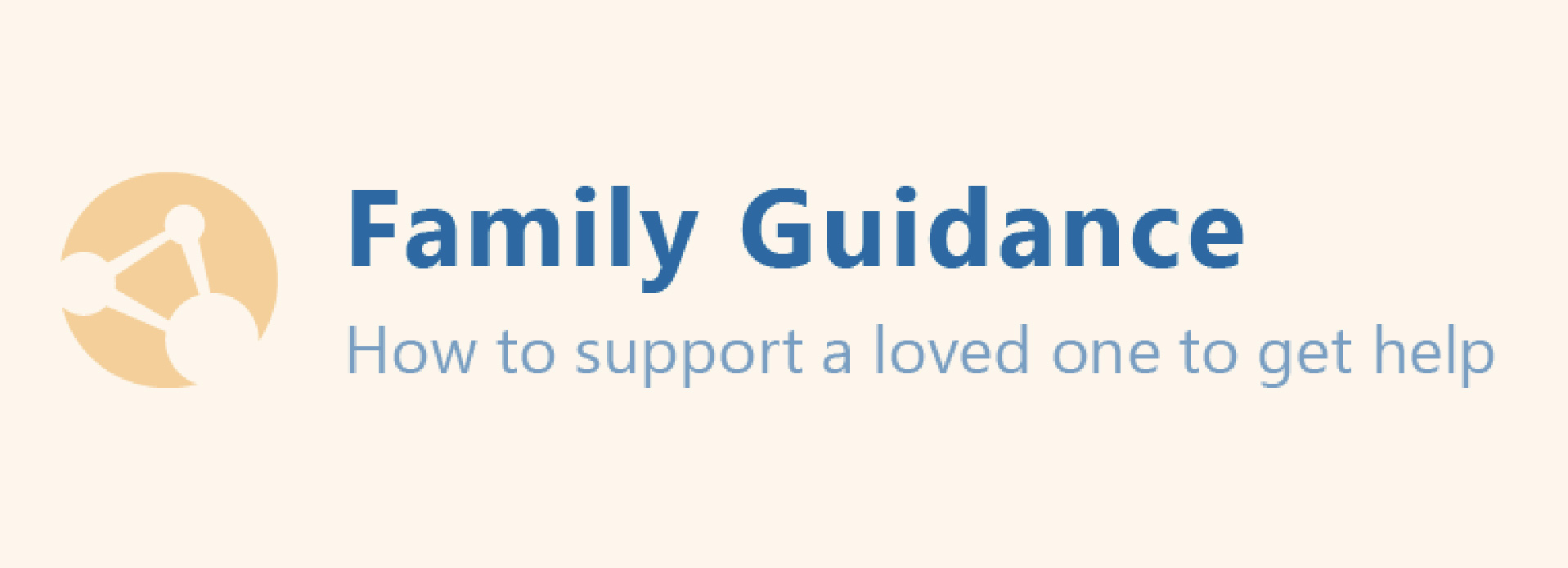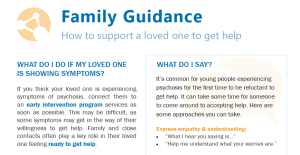
What Can I Do to Help?
It can be very distressing to realize that someone you care about is experiencing psychosis. You might feel worried, afraid, shocked, confused, guilty, or helpless. You might not know where to begin or how to help. It’s common for young people experiencing psychosis for the first time to be reluctant to get help. It can take some time for someone to come around to accepting help. Here are some approaches you can take.
Try to stay positive. Assure them that help is available, things can get better, and having the courage to seek help is a sign of strength rather than a sign of weakness or failure. Don’t dismiss behavioural changes as a part of adolescence. Avoid nagging, arguing, or using hurtful words.
Express empathy & understanding:
“What I hear you saying is…”
“Help me understand what your worries are.”
Try to show how their behaviours don’t mesh with their goals:
“On one hand you’re saying you want to meet people, but on the other you’re not going out.”
Convey hope and build off strengths:
“I know things are hard right now, but things can and will get better.”
“Many people have been through this…”
Help support positive change towards their goals:
“Where would you like your life to be in five years?”
“Let’s make a pros and cons list.”
Work towards small steps:
“Let’s just try to get an assessment to try to figure out what’s going on.”

Family Guidance – How to support a loved one to get help
Download the printable information sheet:
English | French | Italian | Spanish | Chinese (Mandarin) | Punjabi



